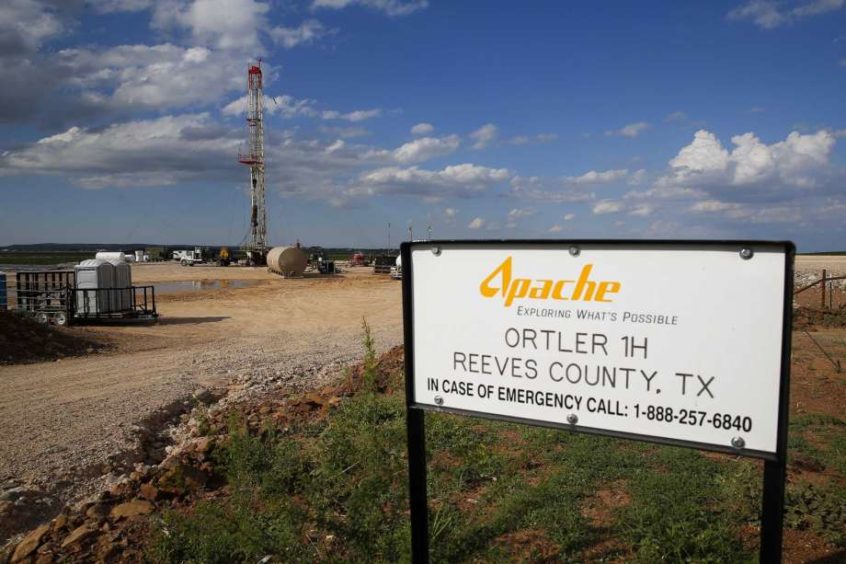
Houston’s Apache Corp. said Tuesday it will dramatically cut back on its natural gas production in the Permian Basin for an extended period of time because of steep pricing discounts caused by pipeline shortages in the region.
There’s so much associated gas produced along with crude oil that many companies are having to pay to have the excess gas shipped away. Either that or they’re simply flaring more of the gas and burning it into the atmosphere, contributing to pollution and climate change.
Much of Apache’s Alpine High acreage in the southern Permian is primarily gas producing, so Apache is simply making the decision to scale back its output for now – reducing its production by 250 million cubic feet per day. The change could last for several months.
“This is the proper approach from both an environmental and economic perspective relative to other industry practices such as flaring or selling associated gas at a negative or unprofitable price,” said Apache Chief Executive John Christmann.
While the U.S. benchmark for natural gas pricing is sitting above $2.50 per million British thermal units, the Permian gas is deeply discounted and has even dipped into record-low negative pricing at times this year.
There’s a rush to bring more oil pipelines online to carry the crude to refining and port hubs near Houston and Corpus Christi, but there are fewer natural gas pipeline projects underway. Houston-based Kinder Morgan is leading the two biggest gas pipeline projects, but the lack of gas pipeline capacity will continue at least through most of 2020.
Apache is a major customer on both of those Kinder Morgan pipeline projects but the first, the Gulf Coast Express Pipeline, isn’t scheduled to come online until October. The second, the Permian Highway Pipeline, is slated for a 2020 completion.
The expectation is that new pipelines coming into production will eliminate much of the Permian pricing discounts, but that will take time.
“We anticipate relatively wide and volatile natural gas price differentials in the Permian Basin until the Gulf Coast Express pipeline enters service,” Christmann said. “As a long-term returns-focused company, we know that production deferrals such as this will improve financial performance despite the impact on near-term volumes.”
Apache said it plans to provide another update when it releases its first-quarter earnings on May 1.
This article first appeared on the Houston Chronicle – an Energy Voice content partner. For more from the Houston Chronicle click here.
Recommended for you
